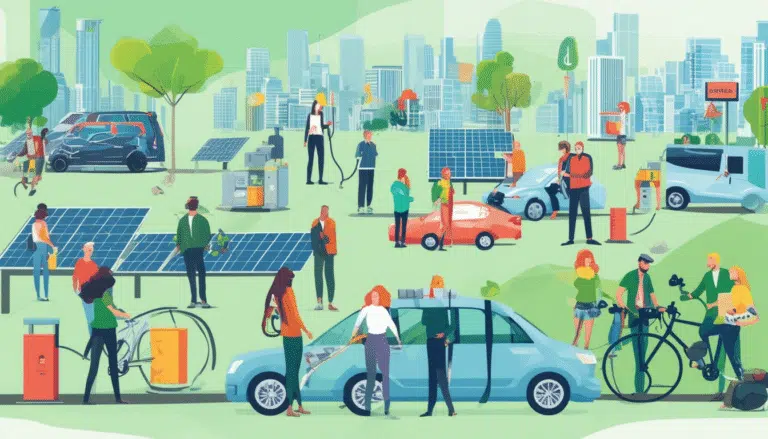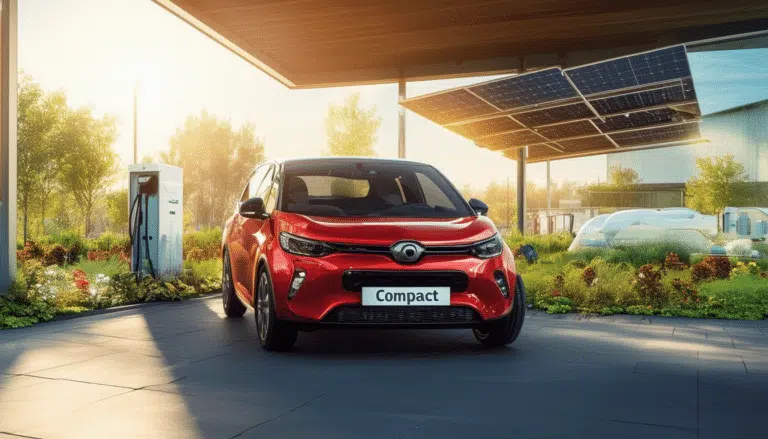Reduction of fuel spending: myths and realities

The reduction of fuel expenditure has become a topic of growing interest among drivers and car owners. However, over time, numerous myths surrounding this issue have emerged, creating confusion that can affect our decisions. From the belief that opening the windows saves more gasoline than using air conditioning, to the idea that certain additives can immediately reduce consumption, it is essential to unravel the realities behind these myths. Understanding how our actions behind the wheel impact fuel usage can guide us towards more efficient and economical practices.
The concern about fuel expenses and its economic and environmental impact has led many people to seek ways to reduce it. However, there are numerous myths surrounding this issue that can lead to confusion and wrong decisions. In this article, we will analyze the most common myths and the realities behind them, providing you with useful information to optimize fuel consumption and maintain a sustainable approach.
Common myths about fuel savings
Myth 1: Opening the windows consumes more fuel than using air conditioning
It is common to hear that opening the windows consumes more fuel than using air conditioning. However, this statement is contextual. At low speeds, opening the windows may be more efficient, while at high speeds, using air conditioning may be preferable due to air resistance.
Myth 2: Always driving in the highest gear saves fuel
It is believed that always using the highest gear is the best way to save fuel. In reality, this depends on driving conditions. Driving in gears that are too high can cause the engine to operate inefficiently, increasing fuel consumption.
Myth 3: Fuel additives reduce expenditure immediately
Many think that adding certain additives to the fuel will instantaneously decrease its consumption. The truth is that these products are not always effective and, in some cases, they may be unnecessary if the vehicle is properly maintained.
Realities about fuel savings
The importance of maintenance
A fundamental factor in the reduction of fuel expenditure is the maintenance of the vehicle. Keeping tires properly inflated and performing regular inspections can significantly influence fuel performance. For more information on this topic, you can consult the importance of maintenance.
The aerodynamics of the vehicle
Aerodynamics also plays a crucial role. Using roof racks or accessories that alter the shape of the vehicle can increase air resistance, which, in turn, increases fuel consumption, especially on highways at high speeds.
Condition of the tires
Worn tires can increase fuel consumption. When they are deflated, the vehicle requires more effort to move, resulting in additional expenditure. Therefore, it is vital to regularly check tire pressure.
Effective strategies for reducing fuel expenditure
Efficient driving
Adopting efficient driving, such as avoiding sudden accelerations and maintaining a constant speed, can improve fuel performance. Additionally, monitoring behavior behind the wheel is essential for making wiser decisions on the road.
Weight and load reduction
Overloading the vehicle can also impact fuel consumption. Less weight means greater efficiency, so it is advisable to carry only what is necessary on each trip and avoid leaving unnecessary loads in the car.
Use of innovative technologies
The advancement of technologies has also enabled the emergence of hybrid and electric vehicles that reduce fuel consumption. For example, you can discover how Peugeot’s hybrid cars are evolving to match the performance of conventional vehicles in this article.
Route planning
Proper route planning can avoid traffic jams and unnecessary waiting times. This, in turn, not only saves fuel but also reduces polluting emissions.
Proactive Maintenance
Performing proactive maintenance on your vehicle will help optimize its performance and fuel consumption. You can find more about this topic in this maintenance tips guide.
Conclusion
In summary, the reduction of fuel expenditure is full of myths and realities that are crucial to understand. Making adjustments in driving style, keeping a vehicle in good condition, and considering sustainable alternatives are key steps to optimizing fuel consumption and contributing to environmental care. Additionally, following good practices and demystifying erroneous beliefs can result in significant savings in your fuel expenses.
In today’s world, where concern for the environment and sustainability are priorities, the reduction of fuel expenditure has gained great relevance. However, there are numerous myths surrounding this issue that can lead to confusions and wrong decisions. For example, many people believe that driving with the windows down saves more fuel than using air conditioning. However, this paradigm can be false, as aerodynamics worsens, increasing gasoline consumption under certain conditions. It is crucial for drivers to understand the reality behind these beliefs to optimize their driving and reduce their expenses.
Another common myth is the assumption that fuel additives provide instant savings. However, the reality is that these products do not guarantee improved performance and may result in unnecessary expenditure. Furthermore, proper vehicle maintenance, such as checking tires and avoiding excess weight, has a direct impact on fuel efficiency. Therefore, it is essential to follow regular maintenance strategies to ensure optimal operation.
Finally, it is essential to highlight the importance of adopting efficient driving habits. Avoiding sudden accelerations, maintaining a constant speed, and planning routes are practices that, in the long run, can significantly contribute to gasoline savings. By understanding and demystifying these beliefs, not only does the wallet benefit, but a more sustainable and responsible lifestyle with our environment is also promoted. The next time you get behind the wheel, consider these aspects and start making decisions that truly favor the efficient consumption of fuel.






